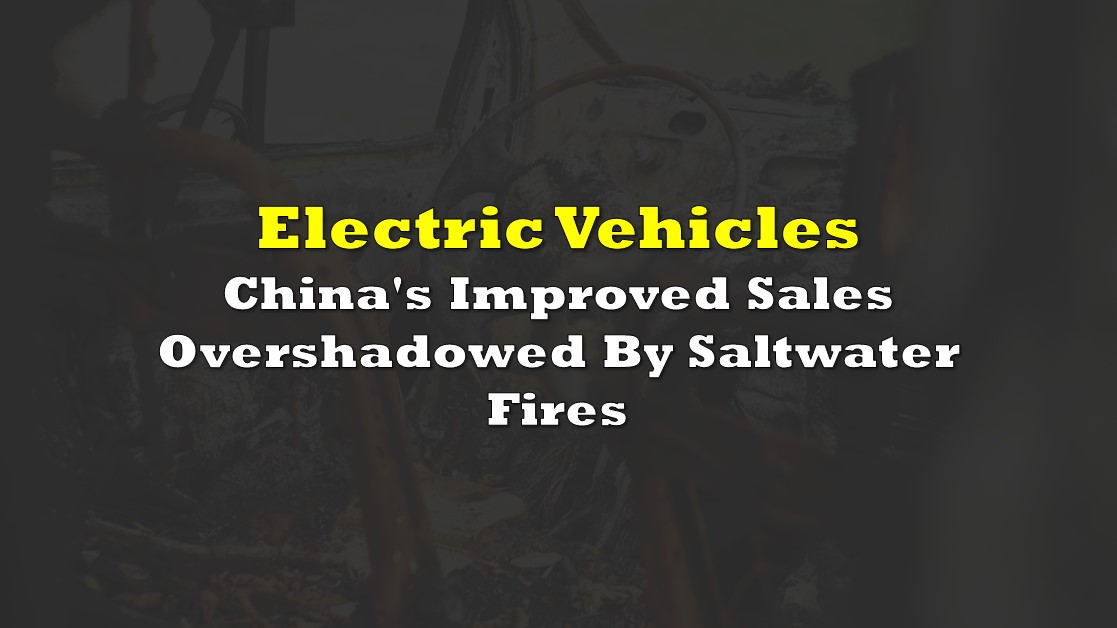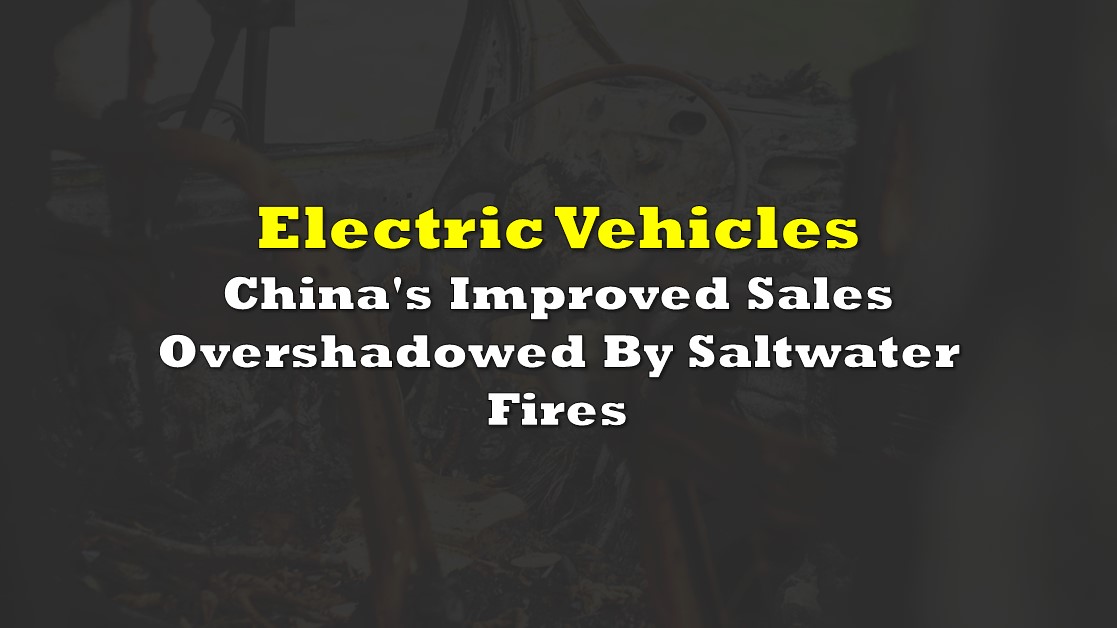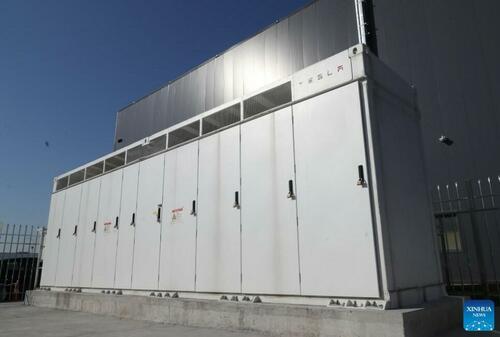Energy & Critical Metals
China’s Improved EV Sales Overshadowed By Saltwater Fires
Two developments related to electric vehicles (EVs) have occurred in recent weeks: one has clear positive implications for the industry,
The post China’s…

Two developments related to electric vehicles (EVs) have occurred in recent weeks: one has clear positive implications for the industry, including for battery metal miners such as lithium miners, while the other could cause prospective EV buyers to question whether such a purchase introduces previously unforeseen risks.
First, on September 4, the China Passenger Car Association (CPCA) reported that China’s passenger new energy vehicle (NEV) wholesale sales reached approximately 800,000 units in August 2023, up 9% from July 2023, and 27% from August 2022. Most analysts consider this sales level to be robust, particularly after a slight sequential decline in July.

What is especially impressive is that the CPCA reports that China’s overall passenger car market has been slow since July. However, the introduction of new NEVs, together with increased promotions, has caused buyer enthusiasm for electric vehicles to increase. In the full-year 2023, the CPCA expects total China passenger car sales to reach 23.5 million units, of which 8.5 million, or 36%, will be NEVs.
Second, and less positive, at least two electric vehicles (both reportedly Teslas) in Florida apparently burst into flames after being submerged in saltwater. The flooding was caused by Hurricane Idalia which ripped through the Big Bend region of Florida on August 30.
EV explosions following a saltwater surge apparently are fairly common. In the weeks following Hurricane Ian’s hitting Florida’s west coast in September 2022, the U.S. Fire Administration (USFA) documented 12 EV fires in the state’s Collier and Lee counties. Firefighters say that exposure to saltwater can trigger the spontaneous combustion of lithium-ion batteries.
The potential cause for the fires is frightening for a consumer who could be subject to flooding from saltwater from the Atlantic Ocean or the Gulf of Mexico. The USFA says that “residual salt within the battery, or battery components, can form conductive ‘bridges’ that can lead to short circuit and self-heating of the battery, resulting in fires. The time frame in which a damaged battery can ignite has been observed to vary widely, from days to weeks.”
In light of these explosions, it is certainly possible that potential EV customers along the Florida and Gulf coasts may factor this risk into their car-buying decisions.
Information for this briefing was found via CNN and the sources mentioned. The author has no securities or affiliations related to this organization. Not a recommendation to buy or sell. Always do additional research and consult a professional before purchasing a security. The author holds no licenses.
The post China’s Improved EV Sales Overshadowed By Saltwater Fires appeared first on the deep dive.

Uranium Exploration Company Announces Additional Staking in the Athabasca Basin
Source: Streetwise Reports 12/22/2023
Skyharbour Resources Ltd. announced an update from its Canada-based Falcon Project along with additional…
Tesla Launches New Mega Factory Project In Shanghai, Designed To Manufacture 10,000 Megapacks Per Year
Tesla Launches New Mega Factory Project In Shanghai, Designed To Manufacture 10,000 Megapacks Per Year
Tesla has launched a new mega factory…
Giving thanks and taking stock after “a remarkable year”
An end-of-year thank you to our readers, industry colleagues and advertisers before Electric Autonomy breaks from publishing until Jan. 2
The post Giving…











